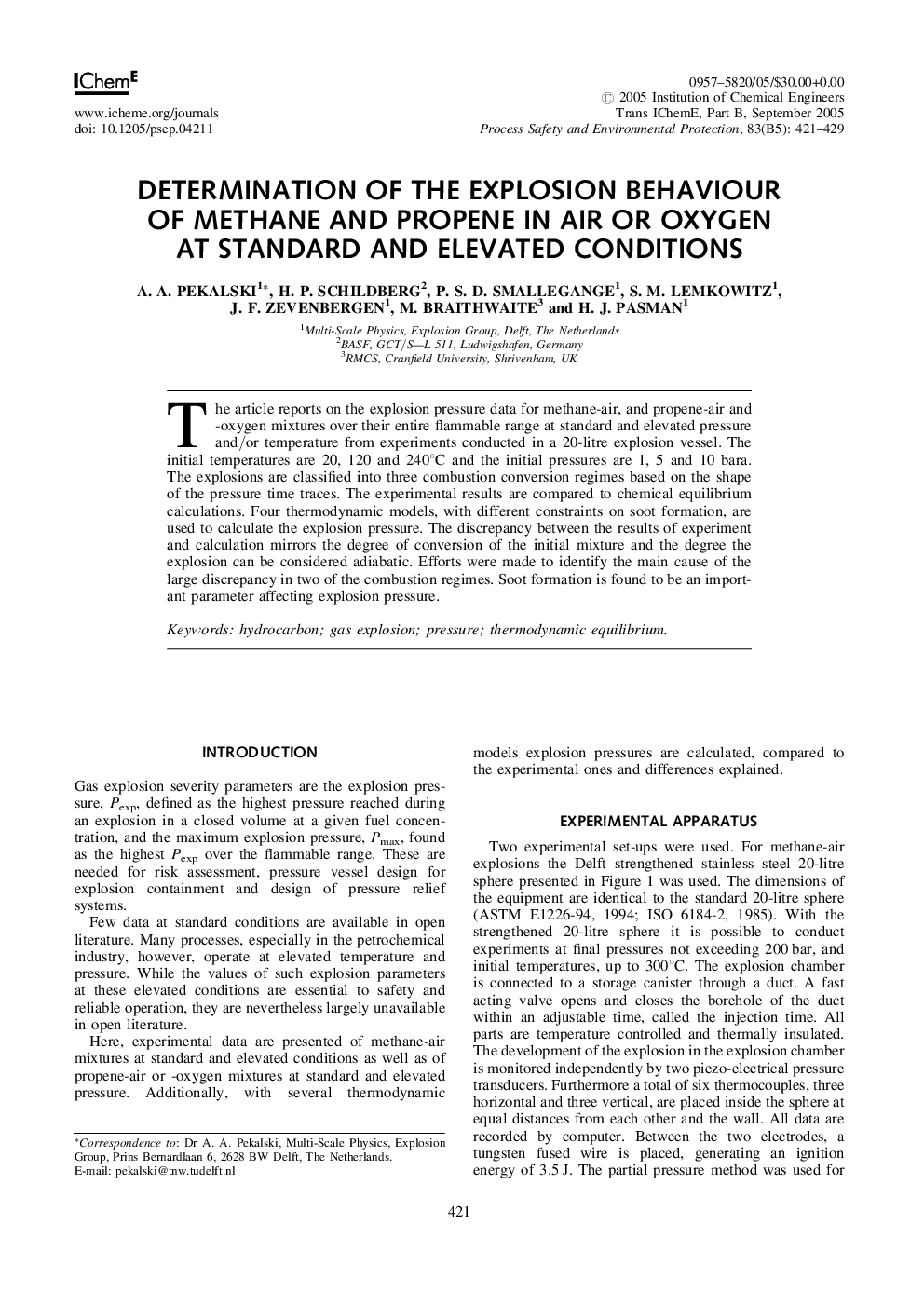| Article ID | Journal | Published Year | Pages | File Type |
|---|---|---|---|---|
| 10373987 | Process Safety and Environmental Protection | 2005 | 9 Pages |
Abstract
The article reports on the explosion pressure data for methane-air, and propene-air and -oxygen mixtures over their entire flammable range at standard and elevated pressure and/or temperature from experiments conducted in a 20-litre explosion vessel. The initial temperatures are 20, 120 and 240ÌC and the initial pressures are 1, 5 and 10 bara. The explosions are classified into three combustion conversion regimes based on the shape of the pressure time traces. The experimental results are compared to chemical equilibrium calculations. Four thermodynamic models, with different constraints on soot formation, are used to calculate the explosion pressure. The discrepancy between the results of experiment and calculation mirrors the degree of conversion of the initial mixture and the degree the explosion can be considered adiabatic. Efforts were made to identify the main cause of the large discrepancy in two of the combustion regimes. Soot formation is found to be an important parameter affecting explosion pressure.
Related Topics
Physical Sciences and Engineering
Chemical Engineering
Chemical Health and Safety
Authors
A.A. Pekalski, H.P. Schildberg, P.S.D. Smallegange, S.M. Lemkowitz, J.F. Zevenbergen, M. Braithwaite, H.J. Pasman,
